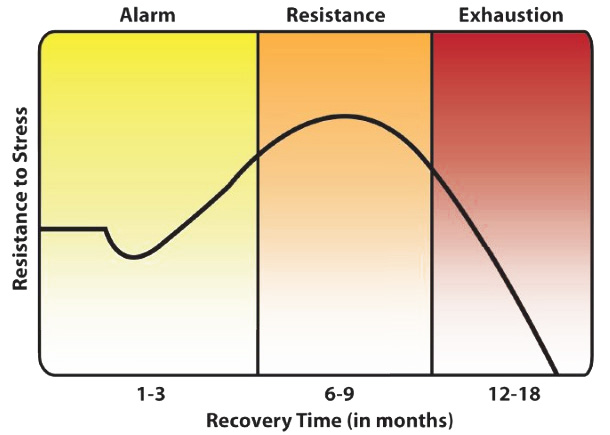Chronic Stress and Adrenal Fatigue
Monitor Your Cortisol Levels Seasonally

▶︎ Purchase Adrenal Support Products
▶︎ How To Check Your Cortisol Levels
We will start this basic discussion with the hormone
cortisol. Cortisol, produced from cholesterol in the adrenal glands, is a member of the family of steroid hormones and is widely known as the "stress hormone". When your body experiences a stressor, your adrenal glands secrete cortisol into your bloodstream. A rise in your cortisol level acts to give you a quick burst of energy, to heighten your memory functions, to increase your immunity, and to lower your sensitivity to pain. This is an effective system, as long as this rise in cortisol level is "turned off" relatively quickly and you don't need to use this "fight or flight" response too often.
Unfortunately, in today's hectic world, our cortisol levels can frequently be elevated with the job of dealing with day-to-day stress. For some of us, our cortisol gets "stuck on high", and for many of us, our adrenal glands can become exhausted from overproduction. According to researchers, "Acute stress may induce an individual's adaptive response to environmental demands. However, chronic, excessive stress causes cumulative negative impacts on health outcomes."
If it isn't tough enough on the body that its stress-handling glands are overworked, cortisol happens to play an essential role in many vital bodily functions -- regenerative processes, protein synthesis, inflammatory mediation, blood sugar regulation, mood, cognition, memory, and more. Fortunately or unfortunately, the body prioritizes its cortisol use for handling day-to-day challenges, tensions, and pressures -- almost always at the expense of other core bodily functions. This means that for many of us, cortisol is shunted away from its critical role in regenerating the colonic mucosa, rebuilding bones, keeping blood sugar stable, regulating the sleep cycle, and other processes vital to long-term health.

In other words, if your cortisol levels remain too high over extended periods, you cannot fully heal, so if you are not already struggling with your health, you are likely to be soon. For a short time, high cortisol is functional. However, sustained high cortisol essentially tears your body down, weakening muscle and bone, slowing down normal cell regeneration, co-opting biochemicals needed to make other vital hormones, impairing digestion, metabolism, and cognitive function, interfering with healthy endocrine function, and weakening your immune system.
Because of the importance of keeping the hormone cortisol in a persistent optimal range, it is crucial to good health to monitor your cortisol levels seasonally (learn how below) and, if needed, to support the adrenal glands via lifestyle changes, herbs, and/or supplements.
I recommend the quality products below for adrenal support. Please also read my #1 Health Tip, which speaks fundamentally to long-term adrenal health!
Chronic Stress & Adrenal Fatigue
Kristina Amelong, CCT, CNC discusses adrenal health, adrenal fatigue, the importance of cortisol to our body's healing capacity, the dangers of chronic stress, and more. She also lists her recommendations for improving your body's adrenal health.
LEARN MORE:
Adrenal Recovery Support Program
What Is Drenatrophin PMG?
#1 Health Tip
By Kristina Amelong, CCT, CNC
I-ACT-Certified Colon Hydrotherapist
Certified Nutritional Consultant
|